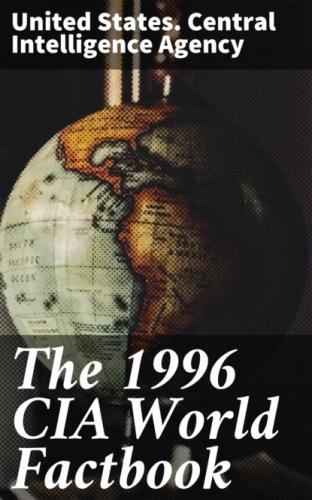Radical Democratic Party (PRD), Juan Jose ECHEVERRIA Brealey;
Democratic Force Party (FD), Isaac Felipe AZOFEIFA Bolanos
Other political or pressure groups: Costa Rican Confederation of
Democratic Workers (CCTD), Liberation Party affiliate; Confederated
Union of Workers (CUT), Communist Party affiliate; Authentic
Confederation of Democratic Workers (CATD), Communist Party
affiliate; Chamber of Coffee Growers; National Association for
Economic Development (ANFE); Free Costa Rica Movement (MCRL),
rightwing militants; National Association of Educators (ANDE);
Federation of Public Service Workers (FTSP)
International organization participation: AG (observer), BCIE,
CACM, ECLAC, FAO, G-77, IADB, IAEA, IBRD, ICAO, ICFTU, ICRM, IDA,
IFAD, IFC, IFRCS, ILO, IMF, IMO, Intelsat, Interpol, IOC, IOM, ITU,
LAES, LAIA (observer), NAM (observer), OAS, OPANAL, UN, UNCTAD,
UNESCO, UNIDO, UNU, UPU, WCL, WFTU, WHO, WIPO, WMO, WTrO
Diplomatic representation in US: chief of mission: Ambassador Sonia PICADO chancery: 2114 S Street NW, Washington, DC 20008 telephone: [1] (202) 234–2945 FAX: [1] (202) 265–4795 consulate(s) general: Albuquerque, Atlanta, Chicago, Durham, Houston, Los Angeles, Miami, New Orleans, New York, Philadelphia, San Antonio, San Diego, San Francisco, and San Juan (Puerto Rico) consulate(s): Austin
US diplomatic representation: chief of mission: Ambassador Peter Jon DE VOS embassy: Pavas Road, San Jose mailing address: APO AA 34020 telephone: [506] 220–3939 FAX: [506] 220–2305
Flag: five horizontal bands of blue (top), white, red (double width), white, and blue, with the coat of arms in a white disk on the hoist side of the red band
Economy———
Economic overview: Costa Rica's basically stable and progressive economy depends especially on tourism and the export of bananas, coffee, and other agricultural products. Recent trends have been disappointing. Economic growth slipped from 4.3% in 1994 to 2.5% in 1995, the lowest rate of growth since 1991's 2.1%. Inflation rose dramatically to 22.5% from 13.5% in 1994, well above the government's own projection of 18%. Unemployment rose from 4.0% in 1994 to 5.2% in 1995, and substantial underemployment continues. These economic woes are likely to be exacerbated in 1996 by a standby arrangement reached with the IMF on 29 November 1995. To restore fiscal balance, the government agreed to curb inflation, reduce the fiscal deficit, increase domestic savings, and improve public sector efficiency while increasing the role of the private sector. Costa Rica signed a free trade agreement with Mexico in 1994.
GDP: purchasing power parity - $18.4 billion (1995 est.)
GDP real growth rate: 2.5% (1995 est.)
GDP per capita: $5,400 (1995 est.)
GDP composition by sector: agriculture: NA% industry: NA% services: NA%
Inflation rate (consumer prices): 22.5% (1995 est.)
Labor force: 868,300
by occupation: industry and commerce 35.1%, government and services
33%, agriculture 27%, other 4.9% (1985 est.)
Unemployment rate: 5.2% (1995 est.); much underemployment
Budget:
revenues: $1.1 billion
expenditures: $1.34 billion, including capital expenditures of $110
million (1991 est.)
Industries: food processing, textiles and clothing, construction
materials, fertilizer, plastic products
Industrial production growth rate: 10.5% (1992)
Electricity: capacity: 1,040,000 kW production: 4.1 billion kWh consumption per capita: 1,164 kWh (1993)
Agriculture: coffee, bananas, sugar, corn, rice, beans, potatoes;
beef; timber (depletion of forest resources has resulted in
declining timber output)
Illicit drugs: transshipment country for cocaine and heroin from
South America; illicit production of cannabis on small, scattered
plots
Exports: $2.4 billion (f.o.b., 1995 est.)
commodities: coffee, bananas, textiles, sugar
partners: US, Germany, Italy, Guatemala, El Salvador, Netherlands,
UK, France
Imports: $3 billion (c.i.f., 1995 est.)
commodities: raw materials, consumer goods, capital equipment,
petroleum
partners: US, Japan, Mexico, Guatemala, Venezuela, Germany
External debt: $4 billion (1995 est.)
Economic aid: recipient: ODA, $NA
Currency: 1 Costa Rican colon (C) = 100 centimos
Exchange rates: Costa Rican colones (C) per US$1 - 193.93 (December 1995), 179.73 (1995), 157.07 (1994), 142.17 (1993), 134.51 (1992), 122.43 (1991)
Fiscal year: calendar year
Transportation———————
Railways:
total: 950 km
narrow gauge: 950 km 1.067-m gauge (260 km electrified)
note: the entire system was scheduled to be shut down on 31 June
1995 because of insolvency
Highways: total: 35,560 km paved: 5,608 km unpaved: 29,952 km (1992 est.)
Waterways: about 730 km, seasonally navigable
Pipelines: petroleum products 176 km
Ports: Caldera, Golfito, Moin, Puerto Limon, Puerto Quepos,
Puntarenas
Merchant marine: none
Airports:
total: 145
with paved runways 2 438 to 3 047 m: 2
with paved runways 1 524 to 2 437 m: 1
with paved runways 914 to 1 523 m: 16
with paved runways under 914 m: 97
with unpaved runways 914 to 1 523 m: 29 (1995 est.)
Communications———————
Telephones: 281,042 (1983 est.)
Telephone system: very good domestic telephone service
domestic: NA
international: connected to Central American Microwave System;
satellite earth station - 1 Intelsat (Atlantic Ocean)
Radio broadcast stations: AM 71, FM 0, shortwave 13
Radios: NA
Television broadcast stations: 18
Televisions: 340,000 (1993 est.)
Defense———
Branches: Civil Guard, Coast Guard, Air Section, Rural Assistance
Guard; note - the Constitution prohibits armed forces
Manpower availability: males age 15–49: 917,566 males fit for military service: 616,420 males reach military age (18) annually: 33,504 (1996 est.)
Defense expenditures: exchange rate conversion - $55 million, 2.0% of GDP (1995)
======================================================================
